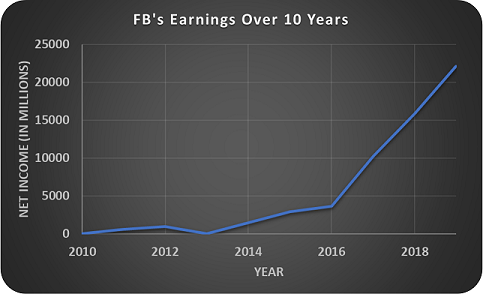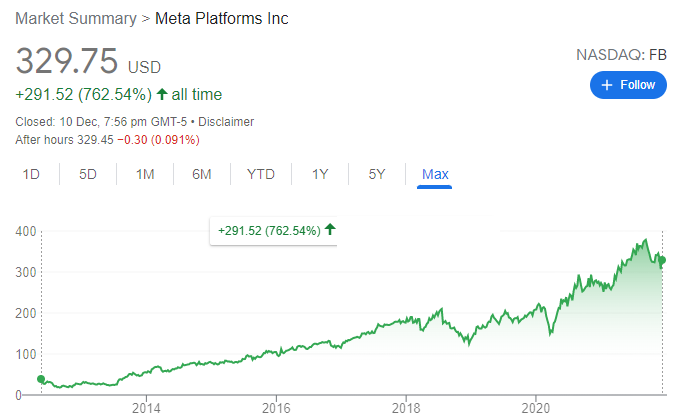Options can be a very attractive way to boost your portfolio performance - just as it has been for me.
However, as I was having a conversation with one of my students...he kept revolving around the same questions:
- If I choose this strike price, is it better?
- Should I choose this delta, since it is more safe?
- Should I choose a higher expiry date?
- Should I buy a more In-The-Money option?
- Should I sell a put or buy a call option?
Now, all of these are great questions. But here's the thing - all of these questions doesn't matter until you answer this ONE question.
- Is the underlying stock a fundamentally good company?
I want to remind our readers over and over again - options are a derivative of the underlying stock. So if we don't understand the underlying stock, we are as good as gambling our money - and I can pretty much guarantee that we would fail as investors.
And indeed, the student was using options on a poor quality company. When I asked why he chose to buy options on that company, his answer was that because he followed the crowd. We then dig into the financials for the company together, and the company financials were so bad, I wouldn't even put a single cent in it.
Why Fundamentals Matter?
I then shared one of the key financial fundamentals that we look at when investing in companies, that is an increasing earnings trend.
Share price eventually follow earnings
In the long term, share price will eventually follow the company's earnings. This works for obvious reasons.
Imagine that you own a restaurant and was making $25,000 a year. Someone came to you and offered you $300,000 to buy over your business. And you rejected their offer.
5 years later, your restaurant is making $100,000 a year. If someone came to you and offer you $350,000 to buy over your business...what would you say?
That's right - you will ask that person to get lose. You are making 4 times your earnings, so how can the offer price only increase only by $50,000??
The stock market is the exact same thing - if a company's earnings (profits) continue to increase, it is only natural that the share price continues to increase.
Take a look at Facebook's earnings for example.

It is obvious that it is on an uptrend. This is the net income that Facebook has achieved over the past years and they report their earnings every single quarter.
With an increasing earnings trend, what do you think happens to the share price?

It is only natural for the share price to increase. This is why I insist only on investing my money in companies that have an increasing earnings trend.
By the way, if you are not sure where to get the earnings of the company, do refer to my 8-point checklist - where I detailed the steps to find the earnings as well as other important financial ratios that I look at.

Get Your 8-Point Checklist!
So that you know what stocks
to avoid investing in.
Buy Call VS Selling Put
The answer to this question is extremely straightforward. That is to look at volatility of the stock market. Most of the time, I am buying call options until there are market downturns, where volatility is high and call options become expensive.
The beauty is that during market downturns, I taught my students this concept of "TP-Secure" such that when the market reverse, the call options are automatically liquidated due to stop loss orders, freeing up capital to buy stocks or sell put options.
During market downturns, there is a lot of fear in the market (which is extremely good for investors). When there is a lot of fear in the stock market, there is heighted volatility, this means that option premiums goes up. When option premiums goes up, it only make sense for me to become an option seller.
This is also why I always look forward to market downturn. Yes, it may lead to a temporary dip in my portfolio. But over the years, I know that this is like a spring being coiled up and ready to bounce my portfolio to the next milestone. So as investors, we must always look forward to the market downturn.
Many investors are worried about their put options being exercised, because they have this wrong mindset of "only wanting to collect the premium". That's rubbish.
To me, the premium collected is the consolation prize - getting the stock exercised is the big prize.
I understand - it does not feel good to see your portfolio in the red. After all, for the put option to be exercised, it means that the share prize falls below the strike price, and that would be an unrealised loss. But take note, this is an unrealised loss.
Besides, if you have done your homework - you should only sell put options on stocks that:
1) you can afford to own the 100 shares (without portfolio concentration risk) and
2) at strike price that you do not mind owning them at (i.e. undervalued price).
If you fulfilled these two criteria, there is no reason you should be afraid of being exercised. In fact, getting my put options exercised has always been the greatest source of capital appreciation.
Some of us also have this mindset, "But Gin, if my put option gets exercised, I am trapping my cash."
That is EXACTLY THE POINT!
Cash is frozen, it cannot grow at all and it has a 100% risk to inflation losses. So why the heck would you want to keep cash...it makes very little sense...
Instead, I put my cash in stocks. Why? Because stock prices can move, and when invested in the right companies, that increases my net worth.
If we truly want to become better investors, we have to start mastering the mindset that cash should always be converted into quality assets so that it can grow, and we survive from the cash flow produced from the assets.
That is how I know that my portfolio will eventually feed me even after I leave my job.
The Bottom Line
The bottom line is this.
Always invest your money in fundamentally good stocks - even when you are using options. Don't blindly follow the crowd.
Always remember that cash only guarantees you a loss due to inflation. As much as possible, I will invest all surplus cash into quality assets - such as "qualified stocks" or properties.
If you still have not caught my video training on "qualified stocks", make sure that you catch the training soon.

The 6-Figures Roadmap
What an engineer did to grow his portfolio from $7,137.68 to $185,352.15 in just 4 years using qualified stocks...so that WORKING AT A JOB was A CHOICE AND NOT A necessity...
